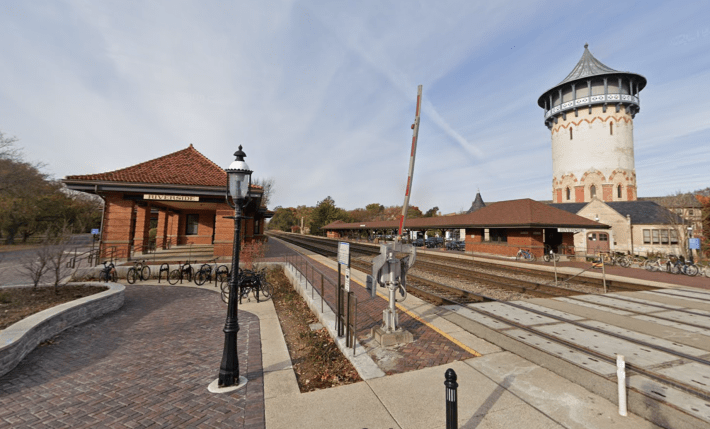The Regional Transportation Authority, which oversees the CTA, Metra, and Pace, is joining forces with the western Chicago suburbs of Cicero and Riverside to help update their zoning codes to leverage existing public transportation assets by promoting walkable, transit-friendly development. The work is being done through the RTA’s Community Planning program, which offers technical assistance and funding to local municipalities and intergovernmental organizations to address planning needs that involve public transportation and land use.
Cicero Zoning Update
In Cicero, which has two CTA Pink Line stations and a Metra BNSF line stop, the RTA will help the town write a Unified Development Code to align with the comprehensive plan adopted in 2017, and the Cicero Connections Transportation Plan, which completed in 2014 in partnership with the RTA.
The RTA says the updated code "will guide future development and help preserve the integrity of traditional neighborhoods, encourage infill and redevelopment where needed, protect existing mixed-use districts, support modern TOD practices, strengthen commercial corridors, and realize the best use potential for existing manufacturing districts."
"The creation of this unified development code will help to protect and build around Cicero's best assets, such as the transportation system, while creating modern guidelines for developing the town's opportunity areas,” said Cicero project manager Craig Pesek in a statement.
The RTA will bankroll 90 percent of the roughly $100,000 zoning update, with Cicero picking up the rest of the tab.
"We are very excited to have received this assistance from the RTA," said Cicero town president Larry Dominick. "I am committed to Cicero being a business-friendly community and this zoning update will continue to do just that."

Riverside Zoning Update
Meanwhile in Riverside, known for it's unusual leaf-inspired street plan and served by an eponymous BNSF station, the RTA is working with the village to develop new TOD zoning code regulations for several locations in the community, with a focus on the Metra stop area and along bus corridors.
Previously adopted planning studies identified the need for transit-friendly zoning. The RTA will pay for the entire $35,000 cost of the project and has contracted the firm Savoy Consulting, who will be responsible for the project.
“Riverside looks forward to partnering with the RTA to ensure our zoning code incorporates the most up to date best practices for encouraging economic development within the broader context of our historic community,” said Riverside village president Benjamin Sells.
The RTA is supporting both projects through its Community Planning program, which offers technical assistance and funding to local governments and intergovernmental organizations to address local planning needs that intersect public transportation and land use. Through this assistance, the RTA encourages municipalities in the region to develop walkable and more sustainable communities near transit stations and along transit corridors.
Follow John Greenfield on Twitter at @greenfieldjohn.




